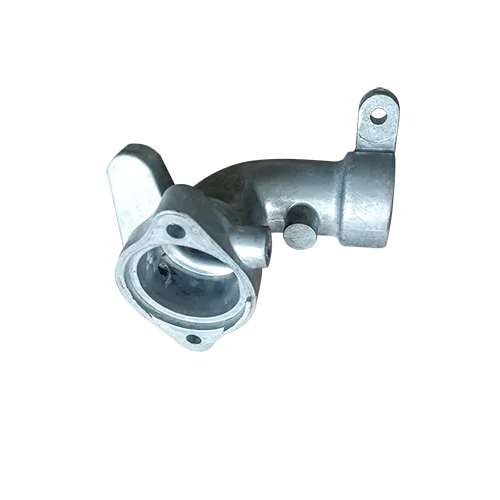Mobile:+86-311-808-126-83
Email:info@ydcastings.com
diesel engine exhaust pipe
The Importance of Diesel Engine Exhaust Systems A Closer Look at Exhaust Pipes
Diesel engines have been a cornerstone of modern transportation and industrial machinery. Their robust performance, efficiency, and reliability make them ideal for various applications, from heavy-duty trucks to construction equipment. However, with great power comes great responsibility, particularly when it comes to emissions and environmental impact. One critical component of a diesel engine's operation is the exhaust system, specifically the exhaust pipe, which plays an essential role in managing emissions and optimizing performance.
Understanding Diesel Engine Exhaust Systems
The exhaust system in a diesel engine is designed to channel exhaust gases away from the engine, reducing harmful emissions and improving efficiency. The exhaust pipe is a key component of this system, connecting the exhaust manifold to the outside atmosphere. When diesel fuel is combusted in the engine, it creates a mixture of gases, including nitrogen oxides (NOx), particulate matter (PM), and carbon dioxide (CO2). The primary function of the exhaust pipe is to safely transport these gases away from the engine and reduce their impact on the environment and human health.
The Role of Exhaust Pipes
1. Emissions Control One of the primary roles of the diesel exhaust pipe is to facilitate the various emissions control technologies. Modern diesel engines often come equipped with systems like diesel particulate filters (DPF) and selective catalytic reduction (SCR). The exhaust pipe transports the exhaust gases through these components, where harmful substances undergo treatment processes before being released into the atmosphere. This helps meet stringent environmental regulations and reduces the overall carbon footprint of diesel engines.
2. Performance Optimization The design and configuration of the exhaust pipe can significantly impact engine performance. Factors such as diameter, length, and bend radius can affect back pressure, which in turn influences engine efficiency and power output. A well-designed exhaust pipe allows for optimal gas flow, improving the engine's ability to breathe and function effectively.
3. Noise Reduction Diesel engines typically produce considerable noise during operation. The exhaust pipe, along with mufflers, helps mitigate this noise by dissipating sound waves. This is especially important in urban environments and job sites where excessive noise can be disruptive and may lead to regulatory challenges.
diesel engine exhaust pipe

Material Considerations
The materials used in constructing diesel exhaust pipes are crucial for durability and performance. Common materials include stainless steel, aluminized steel, and sometimes even high-temperature alloys for more extreme applications. Stainless steel is often preferred due to its corrosion resistance and ability to withstand high temperatures, which is vital given the harsh conditions exhaust systems endure. Aluminized steel, while less expensive, offers decent performance for less demanding applications.
Maintenance and Upkeep
To ensure longevity and efficiency, regular maintenance of the exhaust system, including the exhaust pipe, is critical. Common issues can include rust, leaks, and blockages, which can all adversely affect performance and emissions levels. Inspections should include checks for any visible damage, as well as ensuring that all connections are secure and leak-free. Addressing any issues promptly can prevent larger problems down the line and ensure the engine operates efficiently.
Future Developments
As the world moves towards greener technologies, the importance of efficient exhaust systems in diesel engines is becoming even more pronounced. Research is ongoing into advanced materials and designs that enhance emissions control and vehicle performance without compromising durability. Innovations such as electric turbochargers and hybridization in diesel applications show promise in reducing reliance on traditional exhaust systems while maintaining performance standards.
Conclusion
In summary, the diesel engine exhaust pipe is a vital component that plays multiple roles in emissions control, performance optimization, and noise reduction. As diesel technology continues to evolve, understanding the importance of exhaust systems will be essential for both manufacturers and operators. By focusing on quality materials, proper maintenance, and innovative designs, we can ensure that diesel engines remain efficient and environmentally responsible in the years to come. The future of diesel technology is promising, and with careful management of emissions through effective exhaust systems, it can coexist with our growing environmental concerns.
-
Why Should You Invest in Superior Pump Castings for Your Equipment?NewsJun.09,2025
-
Unlock Performance Potential with Stainless Impellers and Aluminum End CapsNewsJun.09,2025
-
Revolutionize Your Machinery with Superior Cast Iron and Aluminum ComponentsNewsJun.09,2025
-
Revolutionize Fluid Dynamics with Premium Pump ComponentsNewsJun.09,2025
-
Optimizing Industrial Systems with Essential Valve ComponentsNewsJun.09,2025
-
Elevate Grid Efficiency with High-Precision Power CastingsNewsJun.09,2025











